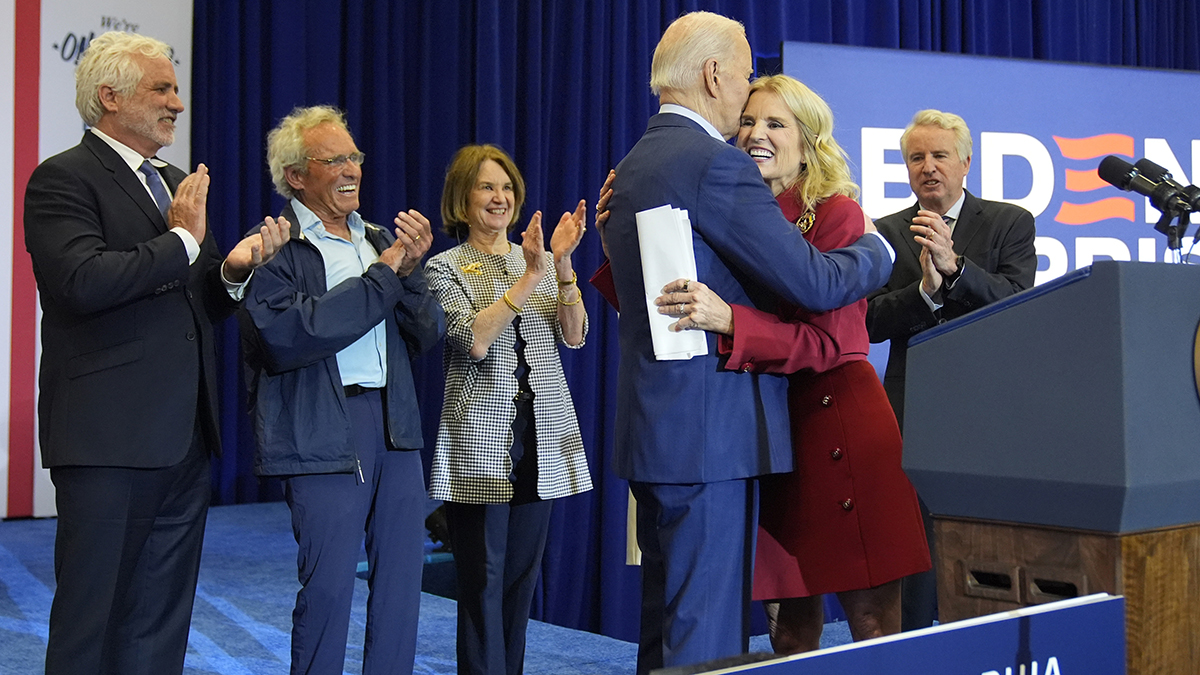In what promises to be a challenging session, Maryland lawmakers will focus on continuing budget problems and the return of divisive legislation that stalled last year, including same-sex marriage, expanded gambling, offshore wind development and limits on septic systems.
Ethics also will be an early highlight of the session that begins Jan. 11, as a joint panel of lawmakers weighs potential sanctions for a prominent state senator who was acquitted of federal bribery charges in November.
Financial issues will be a top concern. Maryland faces a $1.1 billion budget hole, and Gov. Martin O'Malley has been talking about the need for tax increases to support transportation infrastructure and maintain sewage treatment upgrades. Although he hasn't spelled out the details, the governor has alluded repeatedly to some form of raising the 23.5-cents gas tax, which hasn't been increased since 1992. O'Malley also has mentioned raising the state's “flush tax,” an annual $30 fee on sewer bills.
“A modern economy requires modern investments in order to create jobs,” O'Malley, a Democrat, said last week.
Maryland Republicans are pouncing on talk of new taxes, which they say will hurt job creation by chasing businesses out of the state.
“The national economic cycle is still in the doldrums, and taking more money out of the citizens' pockets into the state coffers does not make sense at this time,” said Sen. Edward Reilly, R-Anne Arundel, the Senate minority whip.
While there will be tough spending reductions to consider, O'Malley also will call for accelerating borrowing on the first two years of a five-year construction plan in hopes of spurring construction jobs quickly.
Politics
Political news from the U.S. Capitol, White House and around Washington, D.C., Maryland and Virginia
House Speaker Michael Busch, D-Anne Arundel, said the plan is to take advantage of low interest rates and low labor costs now to maximize work on needed schools and roads, while also stimulating the economy.
“What you're trading off is the fact that you believe you're going to get lower costs and better leverage on your borrowing dollar to accelerate it and, on the back-end, you're not going to be able to invest as much,” Busch said.
Lawmakers also are expected to consider tax credits to encourage employers to hire people.
A push to expand gambling from slot-machine-only casinos to include table games like blackjack and craps will stir debate. There's also talk of trying to allow a casino in Prince George's County, either at Rosecroft Raceway or National Harbor, near the nation's capital. Both proposals would have to be approved not just by the General Assembly, but also by voters on the 2012 ballot.
Busch said he believes expanding gambling opportunities to table games would find support, but he said a proposed new site will complicate the debate. That's because people who have already invested in three casinos -- with plans for two more -- made their decisions based on the market share of five casinos in the state.
But Senate President Thomas V. Mike Miller said Prince George's County is prime casino territory, due to its proximity to the nation's capital and Virginia.
“I'm not interested in table games unless Prince George's has a site,” Miller said Tuesday.
Meanwhile, the governor plans to try again with high-profile legislation that failed last year.
Legislation to legalize same-sex marriage in 2011 passed the Senate but stalled in the House by a few votes. Although O'Malley supported the bill, he did not make the measure an administration priority. That changed after New York approved gay marriage not long after Maryland's legislative session adjourned. In July, O'Malley held a news conference to declare he would make same-sex marriage a top priority of his legislative agenda.
Busch said there were probably six to eight delegates who felt uncomfortable about the bill last year, even though they were open to discussing it. While he believes a strong push by the governor will help, the speaker said he still believes it will be a close vote.
“I don't think you're going to see a windfall of people change their minds, but there were legitimately six to eight people last year that lacked a certain comfort level to fully embrace the issue, and it's a question of whether that's going to change over the interim as they've gotten more information,” Busch said.
House Minority Leader Anthony O'Donnell, R-Calvert, said same-sex marriage and tax proposals will prompt major debates in what's brewing to be a significant session.
“It's shaping up to be loaded with major decisions that will have ramifications for decades,” said O'Donnell, who opposes both proposals.
O'Malley also plans to try again to move Maryland toward offshore wind development. In the last session, an O'Malley-backed measure requiring utilities to enter into long-term contracts failed due to questions over how much the power would cost ratepayers. O'Malley has been tight-lipped about what he plans to propose this year, but he said his administration will do something to advance offshore wind.
Another O'Malley-supported measure that did not pass last year would limit septic systems to fight pollution in the Chesapeake Bay.
“I'm more convinced than I've ever been, and I hope that other legislators are increasingly becoming aware of the long-term damage that could be done to the bay,” O'Malley told reporters last week.
This session is on track to have high-profile action early. The General Assembly's Joint Committee on Legislative Ethics is expected to hold a hearing on whether Sen. Ulysses Currie, D-Prince George's, should be sanctioned for failing to disclose work he did for a grocery store chain that paid him more than $245,000 between 2003 and 2008.
“My prediction is that there will be consequences for the senator's actions or inaction in not filling out disclosure forms,” Miller said.
Sen. Jamie Raskin, D-Montgomery, said he plans to focus on ethics reform.
“We could do a lot better in terms of disclosure on the Internet, and we can do a lot better in terms of putting real teeth into the laws,” Raskin said
Lawmakers also will grapple with legislative redistricting for 188 seats in the General Assembly. O'Malley will send a final map to lawmakers on the first day of the session. They will then have 45 days to approve it or pass an alternative plan. If lawmakers don't approve an alternative plan, the governor's proposal becomes law.
Follow NBC Washington to get the latest news, events and entertainment anytime, anywhere: on air, online, and on Facebook // Twitter.



